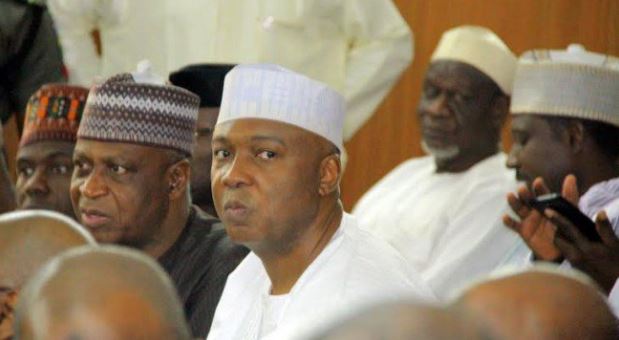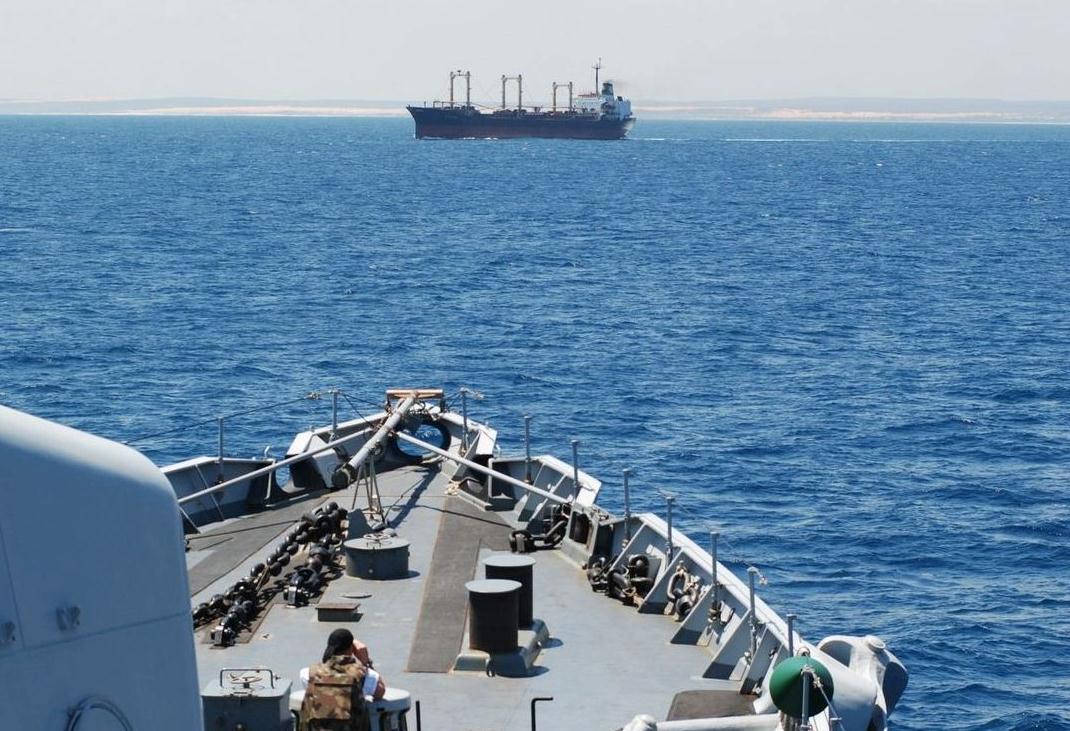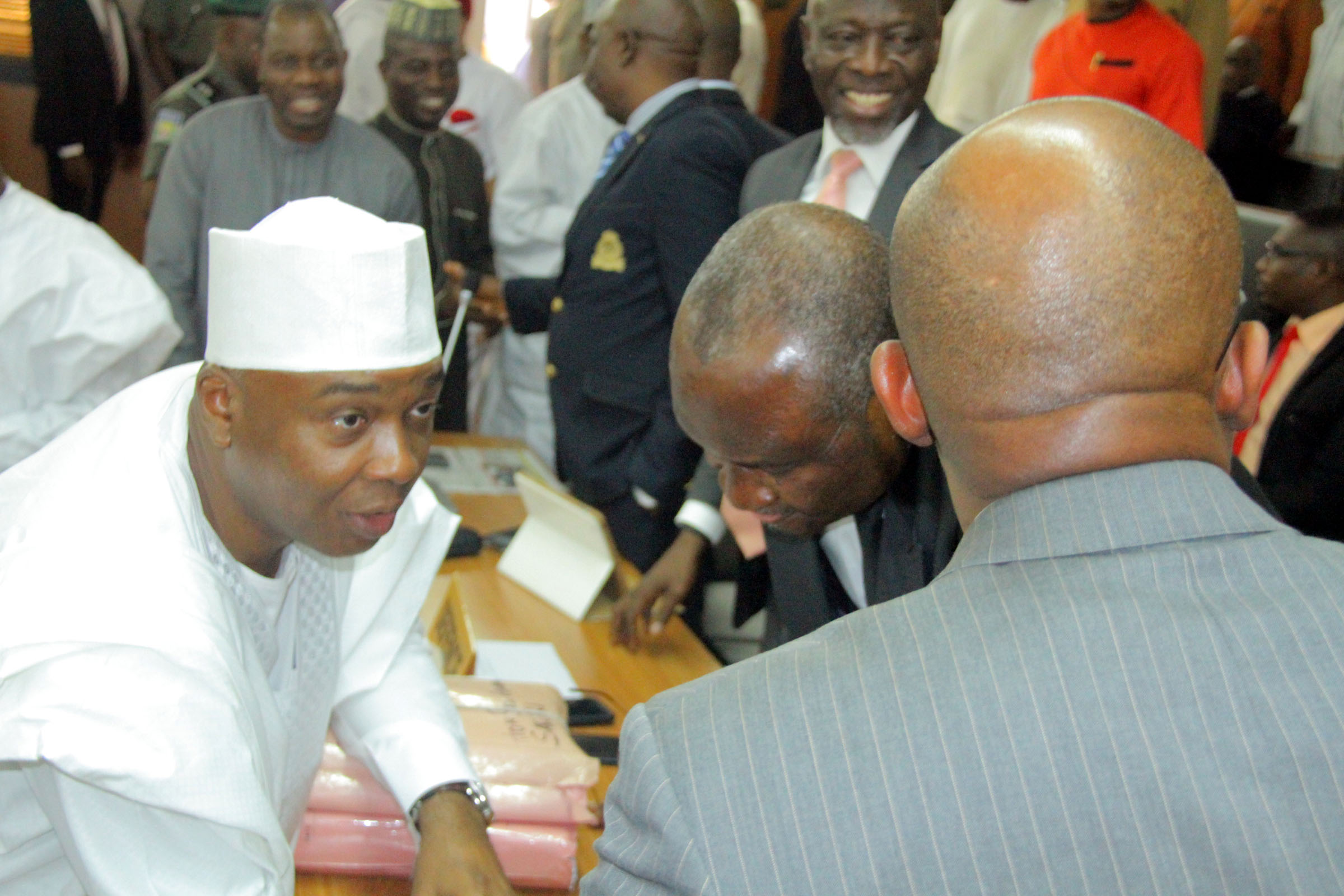Samuel Madojemu, head of investigation at the Code of Conduct Bureau (CCB), has said that a presidential investigative report of 2006 triggered off the investigation of Senate President Bukola Saraki by the Economic and Financial Crimes Commission (EFCC).
Madojemu disclosed this to the agency’s tribunal on Wednesday.
Former president Olusegun Obasanjo was in power at the time Saraki was first investigated by the presidential panel.
Testifying before the tribunal in the false asset declaration trial of Saraki, Madojemu said the report of the panel, which comprised officials of the DSS, CCB and EFCC, was scanty because it only covered the beginning of the first term of Saraki as governor of Kwara state.
Advertisement
Saraki was governor from 2003 to 2011.
The witness said the EFCC later went ahead to conduct a full investigation on Saraki based on the initial report, but it discovered that the allegations against him bordered on breach of the code of conduct for public officers.
He said the CCB had to review the EFCC report at the end of the investigation because the allegations against Saraki fell within its purview.
Advertisement
Madojemu, who is the third prosecution witness, was led in evidence by Rotimi Jacobs, counsel to the federal government.
Jacobs: What do you know about this case?
Madojemu: The EFCC conducted an investigation on this case... the EFCC conducted investigation on a particular case against the defendant. It was thereafter referred to the ministry of justice. The ministry discovered that the issues therein had to do with breach of code of asset declaration. It thereafter referred the case to the CCB….
Madojemu: The chairman of the CCB directed me and two other persons, namely Samuel Yahaya and Peter Danladi to join the EFCC investigation team. When we joined the team, a review of the investigation was done by the CCB, the EFCC and other members of the team. In the course of the review, the team discovered that there was a previous report by a presidential investigation team set up in 2006 consisting of the CCB, the EFCC and the DSS to investigate the tenure of the defendant from 2003. It was that report which covered the beginning of tenure of the defendant. That report was what triggered the EFCC investigation. But the report was scanty, so a full investigation was later conducted.
Advertisement
Add a comment







